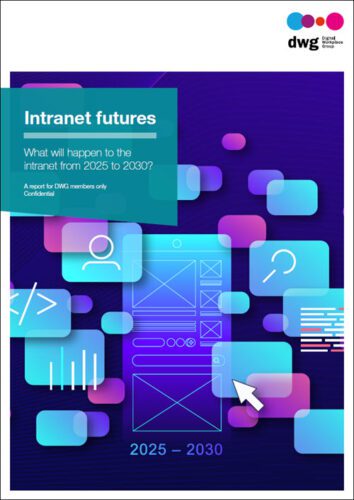Digital workplace technologies and the future of work

Choosing the right digital workplace technologies isn’t about chasing trends – it’s about creating an ecosystem that empowers people, protects data and drives strategic business goals.
The future belongs to organizations who can blend technology and the employee, human, experience into a cohesive, powerful workplace. Tech is the foundation, but its real value lies in how this is embedded into the day-to-day employee experience. Forward-thinking companies are continually reshaping their workplaces.
Real-world digital transformation examples include where organizations have rolled out AI-powered chat or digital assistants to support HR and IT services, helping employees to get answers fast. Or where businesses have invested in digital collaboration hubs where cross-functional teams can work seamlessly, regardless of geography or time zone.
Digital transformation isn’t just about ‘going digital’ – it’s about reimagining how work happens.
Key digital workplace technologies powering the digital workplace
‘Digital transformation’ is no longer a future ambition – in successful organizations it’s happening continuously. This success, however, depends on more than simply adopting new tools; it requires choosing the right digital workplace technologies to create workplaces that empower employees and drive lasting value.
Here’s a look at the core technologies shaping the modern digital workplace.
Cloud-based work environments
Cloud solutions like Microsoft 365, Google Workspace and a wide range of software-as-a-service (SaaS) and intranet platforms form the backbone of the digital workplace. They allow employees to work securely and seamlessly from anywhere, encouraging flexibility, real-time collaboration and smarter knowledge management.
Learn how to unlock the full potential of Office 365AI and automation
Artificial intelligence (AI) and automation are rapidly moving from buzzwords to business essentials. AI-powered chatbots and virtual assistants streamline tasks like IT troubleshooting, service tickets and HR support. Intelligent workflows automate repetitive processes, freeing employees to focus on more strategic work. Harnessing these digital transformation trends can help organizations to become more agile and scalable.
See how AI is reshaping the future of digital workplacesCollaboration and communication tools
Platforms such as Microsoft Teams/SharePoint, Google Workspace, Zoom, Slack and digital whiteboards such as Miro and Mural have become fundamental to how work gets done. Whether it’s instant messaging, video conferencing, collaborative document editing or brainstorming, these tools help bridge physical distances and keep teams aligned.
Explore strategies for smarter collaborationCybersecurity and digital identity management
As digital workplaces expand, so do the threats. Security frameworks like zero trust security, multi-factor authentication (MFA) and secure remote access alternatives to traditional VPNs are critical. They protect sensitive data, maintain compliance and build trust across the organization.
A strong security foundation is essential to enabling digital transformation with confidence.
Data analytics and employee insights
Data-driven organizations are better positioned to adapt and thrive. Modern analytics tools allow leaders to measure productivity, employee engagement and overall workplace wellbeing. These insights help refine strategies, optimize experiences and prove the impact of digital initiatives.
Discover how a content strategy supports smarter digital workplacesWhat’s next for future digital workplace technologies?
The future of the digital workplace will no longer just be about supporting remote work or rolling out new collaboration tools. It will reimagine how, where and why we work. As technology accelerates and employee expectations evolve, here’s a look at the major trends shaping what’s next.
1. The continuous rise of AI-driven digital workplaces
Artificial intelligence is already rapidly moving beyond simple automation. Future digital workplaces will use AI to:
- personalize employee experiences
- provide real-time assistance and decision support
- automate routine tasks and workflows
- analyse data for smarter business insights.
Employees will increasingly manage AI agents, overseeing AI-driven tasks and workflows, effectively becoming ‘agent bosses’. This shift will empower employees to focus on higher-value work such as strategy, creativity, innovation and collaboration.
Explore how AI is reshaping digital workplaces
2. The evolution of virtual offices and the metaverse
Virtual reality (VR) and augmented reality (AR) are opening new doors for how teams interact. The future may see:
- immersive virtual meeting rooms
- virtual onboarding and training experiences
- digital twins of physical office spaces.
Although ‘the metaverse’ is still evolving, early experiments hint at possibilities for richer collaboration and connection.
3. Hyper-automation and next-gen digital assistants
Hyper-automation goes beyond isolated automation tasks. It’s about using AI, robotic process automation (RPA), and machine learning to automate complex, end-to-end processes.
Next-generation digital assistants won’t just respond to queries – they’ll anticipate needs, schedule meetings, automate workflows and help employees to work smarter and faster.
4. Personalization in the workplace
Employees increasingly expect workplace experiences to mirror their consumer experiences: personalized, intuitive and adaptive.
Future digital workplaces will:
- tailor content and communications to individual preferences
- offer personalized learning and development pathways
- adapt services and tools based on user behaviour and needs.
Personalization will drive deeper engagement, satisfaction and productivity.
See how people-centred digital transformation creates better workplaces5. Sustainability in the digital workplace
Sustainability is firmly on the agenda – and the digital workplace has an important role to play. Future-focused organizations are:
- moving to more energy-efficient cloud platforms
- reducing travel through smarter collaboration technologies
- designing digital workplaces with carbon footprints in mind.
However, it’s important to recognize that not all digital transformation automatically reduces environmental impact. Emerging technologies like AI, while offering powerful benefits, can also be resource-intensive – from energy-hungry data centres to the carbon cost of training large AI models.
Organizations must strike a careful balance, ensuring that their digital strategies support environmental goals through initiatives such as:
- implementing paperless workflows where appropriate
- encouraging remote and hybrid work to minimize commuting and travel emissions
- selecting suppliers and partners committed to sustainable practices
- actively monitoring the environmental impact of AI and emerging technologies.
Sustainability is not just a social responsibility – it’s becoming a strategic advantage that forward-thinking organizations are actively building into their digital transformation journeys.
Listen to insights from digital pioneers on the future of transformation
How organizations can prepare for future digital workplace technologies
The future belongs to organizations that are adaptable, curious and people-centred. Building a culture of continuous digital learning, staying open to experimentation and focusing on employee needs at every step will be critical to thriving in the next evolution of work.
Conclusion
The future of work is already unfolding. Organizations that invest now in innovation, personalization and sustainable digital workplaces will not just keep up – they’ll lead.
Ready to create a future-ready digital workplace?
For more digital workplace resources, DWG members have full access to exclusive articles, events, peer insights and a Research Library of 100+ reports covering key areas such as digital workplace transformation, digital employee experience, AI readiness, strategy and governance, change management and more. Contact us to learn how to gain access to this library via DWG membership.
Categorised in: Artificial intelligence and automation, Digital workplace technologies

